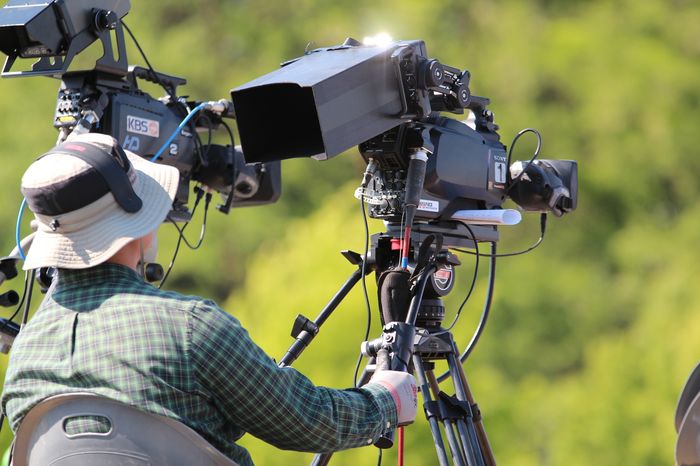Women Talking talks down to its audiences
Women Talking is clever for about five minutes, Heidi Atkins argues, before you realise it doesn’t trust its audience at all and spoon-feeds you its message second by second

I felt conflicted when I left the cinema after watching Women Talking. For the most part I enjoyed it, and I’m with it all the way when it pretty much yells “F*ck the Patriarchy!” But, despite my political agreement, it left me annoyed. The problem is that Sarah Polley, the feature’s director, is hell-bent on over-explaining the film’s message, shredding any remnants of artistic artifice that separates a film from a political thesis.
Following a group of women in an exceptionally conservative Christian commune, the content of Women Talking already tells its audience what it thinks of the world. For years they’ve been drugged and raped in their sleep and, when they questioned it, were told it was in their heads, imaginative fantasies sent from Satan. Once the crimes of the men in the community were uncovered, the women were left with three choices: to fight, leave or stay. We then sit with them while they debate their future from the hayloft in their village.
The cramped barn is populated by A-listers. Jessie Buckley, Frances McDormand, Claire Foy and Rooney Mara are accompanied by a team of fantastic younger actresses, many of whom are making their on-screen debut. In the film’s dialogue-heavy world, I really cannot understate how much I enjoyed seeing these women interact with each other. If you pardon the pun, my favourite part of watching Women Talking was watching women talking.
“Hell-bent on over-explaining the film’s message, shredding any remnants of artistic artifice that separates a film from a political thesis”
Unfortunately, the film doesn’t offer much besides the cast’s outstanding performances. Kate Hallet, the film’s narrator, is charged with some of the most egregious dialogue and, however memorable her acting is, it doesn’t save the compulsively over-explained lines she must deliver. After a particularly rousing speech by one of the women, the crowd erupts in laughter. It’s a telling emotional moment — or it would be — were it not abruptly interrupted by Hallet explaining the scene before you: “sometimes I think people laugh as hard as they’d like to cry”. On multiple occasions the dialogue seems to nudge the audience, wink and say “how good am I, I’m making a social commentary”. When did the age-old rule of ‘show, don’t tell’ get thrown out the window?
The colour grading was particularly irritating. Polley desaturates her shots to such a degree that they become almost greyscale. This choice presumably wants to make the film look like a dreamscape and remind audiences (another patronising nudge) of the text at the beginning: “THE FOLLOWING IS AN ACT OF FEMALE IMAGINATION”. For maybe five minutes this is clever; but as the film goes on, it gets increasingly difficult not to lose patience. There are better ways of signalling to your audience that they’re watching a piece of fantasy or, simply, you could trust your adult audience that they don’t have the memory of a goldfish and the text they saw at the start hasn’t slipped their mind.
Maybe I’m too cynical though, or maybe the desaturation has cooked my brain. After all, the book the film’s based on was written by a woman who was raised in a Mennonite community. She wrote the novel as ‘an imagined response’ to the very real ‘Ghost rapes’ that occurred in the Manitoba colony in Bolivia. Toews, the author, has the explicit intent of getting Women in Mennonite communities Talking.
“Audiences are not idiots. They can interpret and infer”
This is a wonderful mission, but Polley doesn’t share it. Her film adaptation is not centred on Mennonite women and instead gets entirely distracted on the concept of patriarchy. Polley fixates on this. The film feels determined to show the audience the ills of patriarchy, and loses its focus on the women at its centre. Under Polley’s nose was a goldmine of complex female characters who are diluted into a political manifesto. It becomes a project that talks down to its audiences, presuming them incapable of deciphering meaning if it is not spoonfed directly into their mouths.
The subject matter of Women Talking is not something that, in any world, could be (nor should be) de-politicised. Yet there are better ways to create political art than this anxious over-explaining. Even ‘cheesy’ sci-fi flicks in the 80s like Alien, Robocop and Bladerunner were drenched in political messaging but never sacrificed entertainment to force their point with explanatory dialogue down the audience’s throat. Does Ellen Ripley narrate over the alien bursting out of Kane’s chest to explain it’s all because of evil corporations? Hell no!
Audiences are not idiots. They can interpret and infer. And if they don’t, who cares? It’s their loss. Part of enjoying art is finding the meanings yourself, participating in their construction, but you cannot do that with Women Talking. It has already told you exactly what everything means.
 Comment / Plastic pubs: the problem with Cambridge alehouses 5 January 2026
Comment / Plastic pubs: the problem with Cambridge alehouses 5 January 2026 News / SU stops offering student discounts8 January 2026
News / SU stops offering student discounts8 January 2026 Theatre / Camdram publicity needs aquickcamfab11 January 2026
Theatre / Camdram publicity needs aquickcamfab11 January 2026 News / News in Brief: Postgrad accom, prestigious prizes, and public support for policies11 January 2026
News / News in Brief: Postgrad accom, prestigious prizes, and public support for policies11 January 2026 News / Cambridge academic condemns US operation against Maduro as ‘clearly internationally unlawful’10 January 2026
News / Cambridge academic condemns US operation against Maduro as ‘clearly internationally unlawful’10 January 2026









